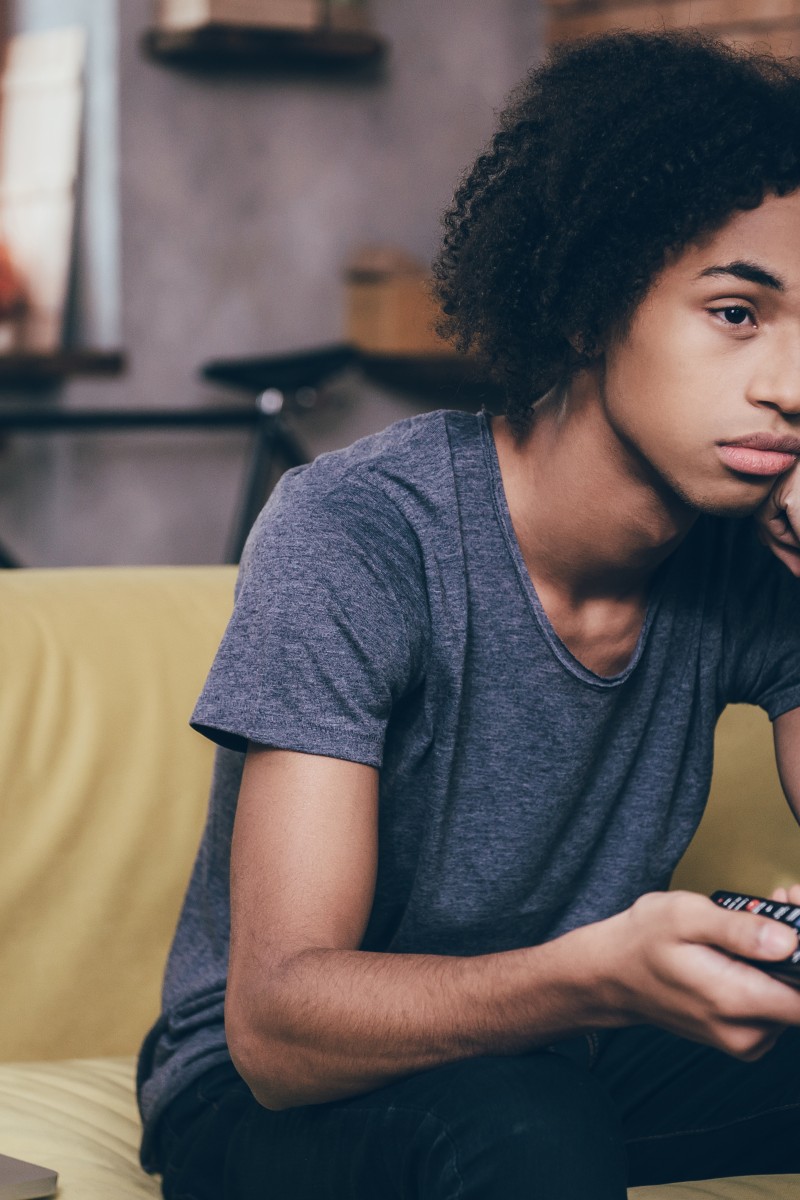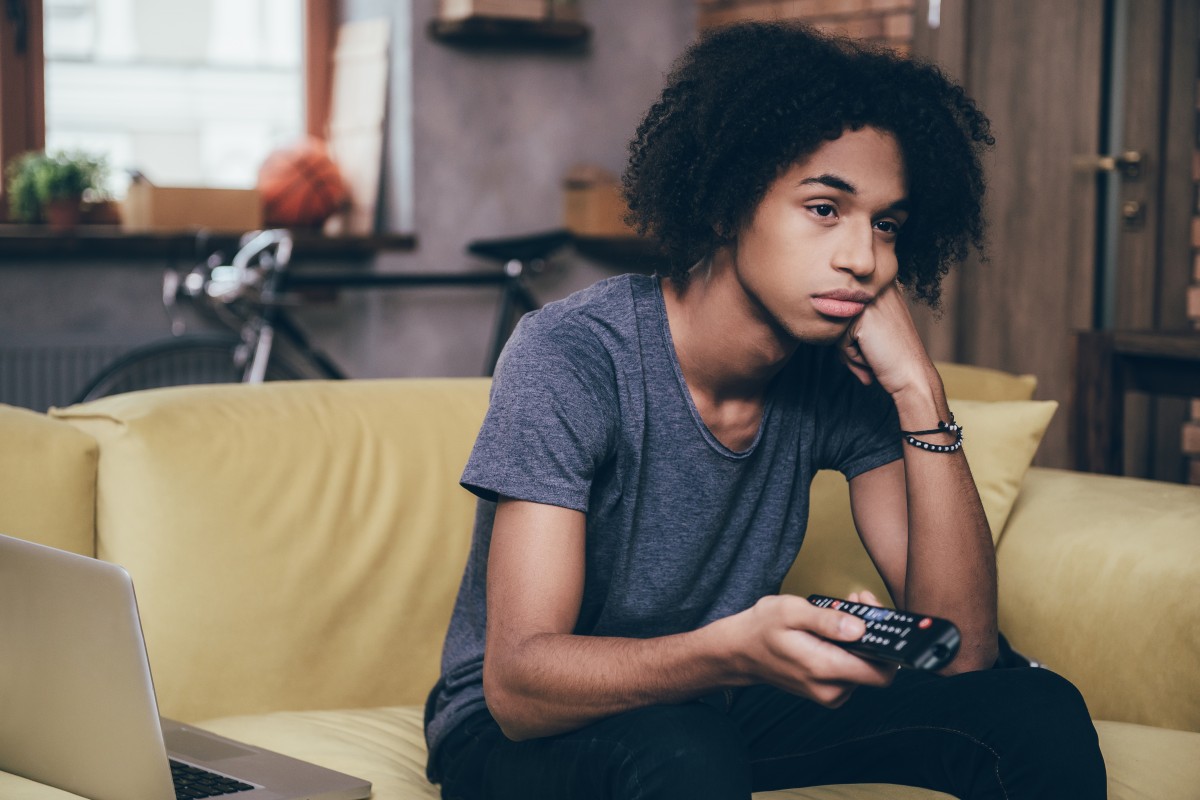
How to beat cabin fever if the coronavirus is keeping you indoors
- From exercise to getting offline, we've got five tips for your mental health while you're stuck at home
- Make sure to stay busy and spend time offline
 Is staying inside starting to drive you nuts? Here's our tips for fighting cabin fever.
Is staying inside starting to drive you nuts? Here's our tips for fighting cabin fever. With schools shut for at least another month, meaning at least four more weeks of Google Meets, Zoom or Schoology (plus we know that many of your parents aren’t super keen on you leaving your home for more than a few minutes, if at all) there’s a real chance you’re developing cabin fever.
A study by psychologists Paul C. Rosenblatt, Roxanne Marie Anderson and Patricia A. Johnson in 1984 of people living in the US state of Minnesota (it’s extremely cold, getting snowed in is not rare) found that while cabin fever meant different things to different people, it tends to include “feelings of dissatisfaction at home, restlessness, boredom, irritability, and needing to break routine”.
Other studies have recorded the effects of being confined to one place for an extended period of time, or isolated from society. Some have simulated what astronauts living at the International Space Station may experience: the effects include sleep disorders, altered stress hormone levels and changes to their immune systems. During Polar explorations, being isolated and trapped indoors has led to cases of explorers and scientists developing paranoid schizophrenia, destroying property, and attacking and even killing colleagues.
5 tips for better concentration, from meditation to playing sports
Cabin fever is the feeling of being angry and bored because you have been inside too long, a sense of isolation brought on by a lack of variety to routine and company. Even if you’re something of a homebody, whose favourite pastime is to binge-watch Netflix, or spend whole weekends playing Fortnite, cabin fever can kick in when you least expect it. Humans are social creatures who need other people and mental stimulation to avoid descending into a very unhealthy mental state. Plus, we have the stress of not quite knowing what’s going on, because the disease is so new.
So to help you avoid losing it completely, here are the top five things you should make time for every day.
Exercise
You know the deal about moving and mood-boosting hormones: exercise reduces stress hormones, such as adrenaline and cortisol, and increases endorphins, the chemicals that elevate your mood. If you’re absolutely banned from going outside, make some space wherever you can, and get your sweat on. There are thousands of work-out videos on YouTube if you need inspiration (and Young Post has some work-outs specially designed for home), or just fire up your favourite upbeat playlist and have a dance party.
If you can get outside, head to the hiking trails or a park for a jog, or to kick a ball around. Study after study shows that being in the great outdoors is beneficial: you get increased vitamin D levels (which may help protect against everything from heart attacks and stroke to depression); you’ll be happier, especially if you’re out in nature; and your concentration will improve.
8 top self-improvement tips that will help you live a happier, more productive life
Talk
Even if your school is running classes over Google Meets and you’re seeing familiar faces, it’s not the same as chatting to your friends. Even if you’re excited to not be in the classroom, the greatest thing about school is the people you grow close to. While we’re being discouraged from engaging in too many social activities, it’s important to catch up. The World Health Organisation recommends maintaining at least 1 metre between yourself and others, so bear that in mind if you manage to meet up in person. (Back to that hiking idea, though; plenty of room for all!)
But even if you can’t hang out IRL, take advantage of all this technology and Facetime a friend, or set up a Google Hangout for your swim team, and just enjoy one another’s (virtual) company.
Carry on as normal
It’s very tempting, when you’re spending time at home, to ignore regular life rules. You might find yourself wanting to go to bed (even) later, indulging in fast food because every day feels like a weekend (we’ve all done the Macca’s late-night delivery), and moving meal times around because you just can’t be bothered to make lunch when it’s just you at home. It’s important to maintain some routine to keep your circadian rhythm in check (and therefore, keep your body running regularly). Get up at a normal time, get dressed as usual, stick to proper meal times, and save checking Instagram and TikTok for break time, just as you would (or should!) in the classroom.
However, to stave off boredom, it’s also a good idea to mix things up a little. Rather than missing out on key needs such as eating or bedtime, vary the order in which you do other things during the day – your workout, your chill time, catching up with friends, and so on. If you’ve got space, you can also switch up where you spend your time, working in a different room each day, or move your furniture around to make a whole new room.
Get offline
You’ll be spending more time than ever on your computer or iPad with all your classes being held online. Even if you work exclusively on a laptop or tablet at school, you still have breaks in the day for classes such as PE or design and technology.
It’s really important to switch off for at least an hour or so every day and have some screen-free time. Read a real book, with paper pages; play a board game with your family; learn to cook a new dish; dig out your childhood Lego and challenge yourself to build something original; or use the time to write, draw, paint, or otherwise express your creativity. Who knows what masterpieces might come out of this time?
How to stay busy even though school is closed
Pay attention
Cabin fever often sneaks up on us. We can be fine one day, and lethargic, emotional, restless and irritable the next. If you’re aware of when and if you’re in a rut, and acknowledge why you’re feeling that way, it’s much easier to get yourself out of it.
